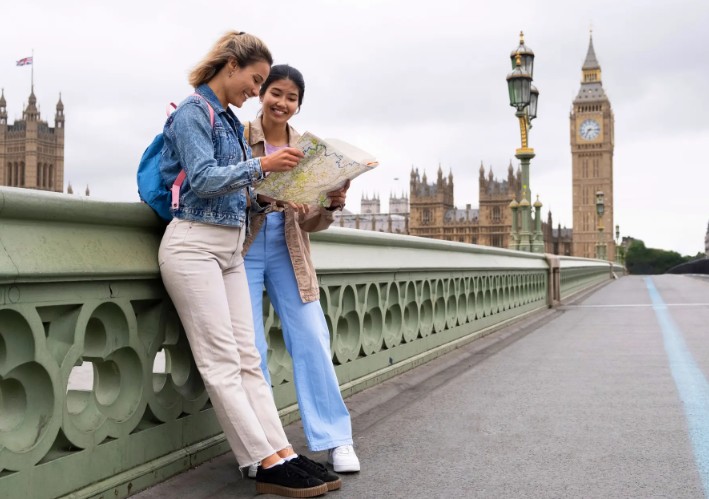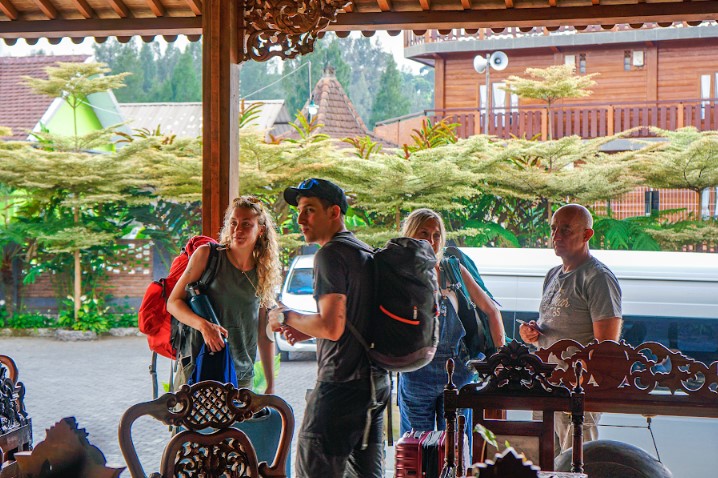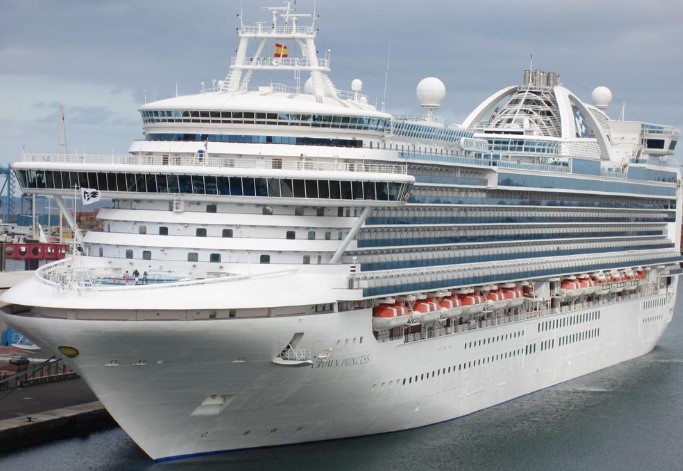SYDNEY—Australia said it would move ahead with the next stage of its border reopening, deeming it has sufficient defenses to manage outbreaks of Covid-19 even as the Omicron variant prompts leaders elsewhere to tighten restrictions.
Starting Wednesday, international students, skilled migrants and people who hold working-holiday visas will be able to travel to and from Australia freely if they are vaccinated, Prime Minister Scott Morrison said. Vaccinated citizens and permanent residents were allowed to travel freely starting in November.
Australia had postponed this phase of its border reopening by two weeks due to concerns about the Omicron variant, which scientists say is more contagious and could lower the effectiveness of vaccines. But the decision to move ahead offers a sign that Omicron—which sent global stock markets tumbling when it was first identified—may not be as disruptive as feared.
Tourists are still mostly barred from Australia, although visitors from Japan and South Korea will be allowed in from Wednesday. Travelers from New Zealand and Singapore had earlier been permitted to visit.
“We’re not going to let Omicron take us back,” Mr. Morrison said Tuesday. “We have decided as a country to live with this virus and Australians have worked so hard to ensure that we can.”
STAY INFORMED
Get a coronavirus briefing six days a week, and a weekly Health newsletter once the crisis abates: Sign up here.
Australia is loosening restrictions as much of the world is tightening theirs because of Omicron. Countries in Europe, such as the Netherlands and Austria, reintroduced full or partial lockdowns and U.K. authorities recently issued a work-from-home order. Japan and Israel have barred almost all foreign visitors. And California just reinstituted a mask mandate for indoor settings, regardless of vaccination status.
Australia has had relatively few coronavirus cases and deaths during the pandemic, partly due to strict travel restrictions and lockdowns. Citizens were barred from leaving the country for much of the pandemic unless granted a rare exemption, and those returning had to quarantine in government-run facilities for two weeks.
Australia, which has about 26 million people, has had about 232,000 Covid-19 cases and 2,100 deaths, according to Johns Hopkins University data. It has recorded dozens of Omicron cases in recent days. The U.S., with around 330 million people, has had about 50 million Covid-19 cases and 797,000 deaths.
Australian officials have said there are indications that Omicron is milder than other Covid-19 variants and that vaccines provide protection against serious illness. Australia is also rolling out booster shots and is now offering them five months after the second dose instead of after six months. A study released last week by
Pfizer Inc.
suggested that a third dose of its vaccine restores the neutralizing antibody response to a level that can fight Omicron.

A traveler getting a Covid-19 test at Sydney Airport.
Photo:
Brendon Thorne/Bloomberg News
Despite a slower-than-expected rollout earlier in the year due to supply issues, more than 90{32bc5e747b31d501df756e0d52c4fc33c2ecc33869222042bcd2be76582ed298} of Australian adults in some parts of the country have now had two doses of a Covid-19 vaccine, which officials say is one of the highest rates of vaccination globally.
“We’re now in a completely different phase,” Mr. Morrison said. “Cases are not the issue.”
Australia’s border reopening comes at a sensitive time for the center-right government led by Mr. Morrison, who is expected to face a tight election contest next year and could benefit from a sense of normalcy ahead of the poll. Some parts of Australia’s economy, such as hospitality and agriculture, are reliant on foreign workers and open borders could provide some relief to businesses grappling with a staff shortage.
Wes Lambert,
chief executive of industry group Restaurant & Catering Australia, estimated there are about 80,000 job openings across the sector. He said restaurants are offering attractive wages, but some have closed on certain days or reduced the meal periods being served because they don’t have enough workers.
“They fear burning out the staff that is working,” he said. “It’s the largest workforce shortage in the history of the industry.”
Carlos Cacho, chief economist for Australia at investment and advisory firm Jarden, said migrants contribute to most of the country’s labor-force growth and that the return of international students is particularly important, noting that prior to the pandemic education was Australia’s third-largest export after iron ore and coal. Many Australian universities, which benefited from lucrative tuition fees from international students, have had to make deep cuts to staff.
Net overseas migration before the pandemic was about 240,000 annually, Mr. Cacho said. But since the pandemic, hundreds of thousands of temporary visa holders have left the country and Mr. Cacho said net migration is now in negative territory.
Although the economy contracted in the July-September quarter, the end of lengthy coronavirus lockdowns and the domestic and international border openings are expected to underpin a recovery in the December quarter.
“Having those skilled migrants come in is going to be really important to drive the recovery post-Covid,” Mr. Cacho said.
Marianne O’Hara, a client relations manager in Sydney who is on a temporary visa, said she hasn’t seen her brother, Mark, for nearly three years. But next month, Mark plans to travel from Northern Ireland to Australia on a working-holiday visa.
Ms. O’Hara said Mark, a head bartender, will arrive two days before her 30th birthday. She said she’s still worried that rising Covid-19 cases in the U.K. and Ireland could prompt Australian authorities to introduce new travel restrictions on arrivals from those countries.
“I’m just hoping and praying the borders stay open for him,” Ms. O’Hara said. “Hopefully, not much longer until I see my parents and other siblings.”
Write to Mike Cherney at [email protected]
Copyright ©2021 Dow Jones & Company, Inc. All Rights Reserved. 87990cbe856818d5eddac44c7b1cdeb8






More Stories
The Ultimate Guide to Mount Bromo and Ijen Tour: A Journey into Nature’s Wonders
The Complete Guide to Pantheon Tickets
Journey Through Italy